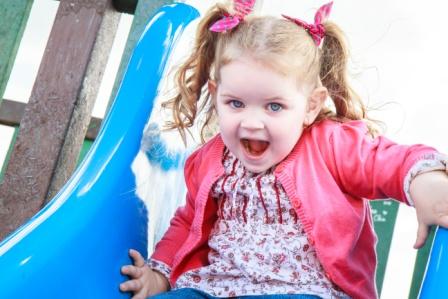Bullying, telling tales and tight-knit cliques are all a part of school (even nursery school) life. And while it might be heartbreaking to see your toddler distraught over one of his first friendship dilemmas, it could present an opportunity to teach an essential life skill – how to deal with conflict.
Conflict teaches understanding
“Social conflict, especially if your child finds themself at the centre of it, provides the perfect learning opportunity: it teaches them how to be an effective problem solver,” says Lynne Arbuckle, primary school Principal of Riverside College, a pre-primary, primary and high school based in Cape Town’s northern suburbs.
“These are the most formative years of your child’s life; conflict teaches personal understanding, respect, communication and negotiation skills,” Arbuckle says. “Rather than fighting their battles for them, what we can do is try to understand the reasoning behind their behaviour and feelings, and help them by teaching them the rules of engagement.”
Teach your child to play nice
- You don’t have to like everybody, but you do have to treat everyone well. Help your child separate feelings from behaviour; they don’t have to control or change their feelings, but they do have to control their actions. This is a tough distinction for kids (even adults) to make. Remember, children love to imitate parents; the best way to teach your child to get along with other children is by showing them.
- Kids live up or down to our expectations. Avoid using words that label a child and rather focus on the behaviour. Once a child has built a perception of herself as someone who acts out and hurts other people, she will continue to behave in that manner.
- Build real connections and strengths. Does your child have other strong friendships? Does your child feel like he or she excels at something? Does he or she have strong connections to adults in their lives? When kids feel insecure and unsupported, they may act out against others.
- Teach your child to say “I’m sorry.” Making a sincere, heartfelt apology – one that comes from recognising that you have hurt someone else – is hard. It is, however, an important skill to learn. Instead of focusing on the reflexive “sorry,” calmly ask your child how his actions may have made the other person feel, ask him what he might do about it. Kids need to learn that “sorry” doesn’t erase what they did.
- Encourage them to take a break. These words may sound funny coming out of the mouth of a toddler (or a 12-year-old, or a 35-year-old), but they are very powerful. When kids are frustrated and feeling like they want to lash out at others around them, this simple sentence can be a way for them to back out of the situation and signal to the adults around them that they need a little alone time. In fact, try it yourself the next time you feel like shouting at someone.
About the Author: Lynne Arbuckle was appointed Principal of Riverside College in 2013. She has a Higher Diploma in Education from the Johannesburg College of Education, and has been teaching for the past 18 years. Riverside College, which is based on Burgundy Estate, offers a holistic approach to education; classes are capped at 24 learners, and a comprehensive academic, sports and extramural activity programme is offered.
Latest posts by Contributor (see all)
- Red flags and warning signs of Autism in early childhood - August 8, 2014
- Nutrition tips for a healthy pregnancy - August 8, 2014
- Keep your baby from getting sunburnt with these tips - August 8, 2014
-
No Comments" href="https://all4baby.co.za/toddlers-1-2-years/toddler-issues/1592/deal-terrible-twos-ps-youre-alone/">

How to deal with the terrible twos (PS. You’re not alone)
-
No Comments" href="https://all4baby.co.za/toddlers-1-2-years/toddler-issues/1534/adhd-toddler-facts-treatment/">

ADHD and your Toddler: Facts and Treatment
-
No Comments" href="https://all4baby.co.za/toddlers-1-2-years/toddler-issues/1536/will-toddler-benefit-play-therapy/">

Will your toddler benefit from play therapy?
-
No Comments" href="https://all4baby.co.za/toddlers-1-2-years/parenting-a-toddler/1441/video-much-toddler-sleeping/">

Video: How much should your toddler be sleeping?


 Saving...
Saving...